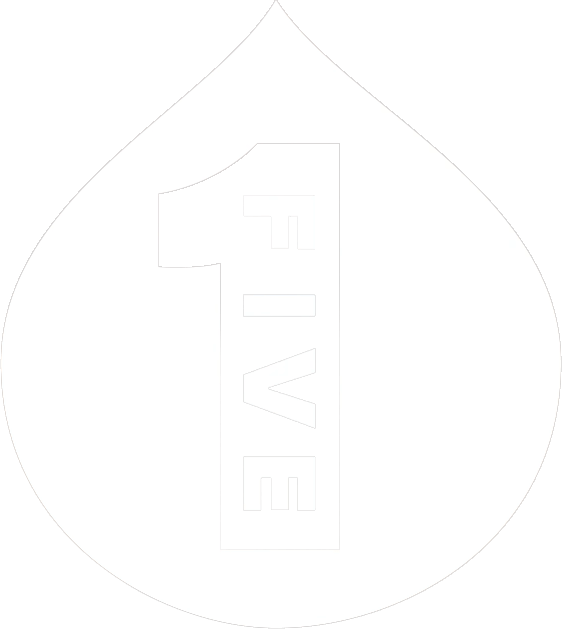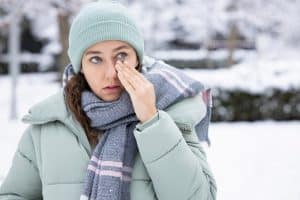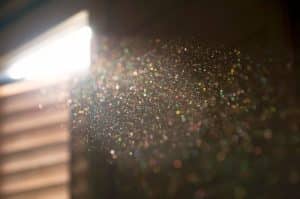Eye drops can help to relieve the symptoms of a number of conditions including dry eye, but it’s a good idea to learn more about them before using them for the first time. Below, we answer some frequently asked questions about how to use eye drops.
Do eye drops expire?
Like most medications, eye drops come with an expiration date beyond which you shouldn’t use them. This is because, over time, the ingredients can degrade and lose their efficacy. If you use the medicine after the expiration date, there’s a greater chance it won’t work – and it may even cause adverse effects. You should be able to find the expiration date clearly stated on the bottle or packaging. If you can’t find the expiration date and you can’t check with your healthcare team, it’s best not to use the eye drops, as you’ve no idea whether or not they are safe to use.[1]
What happens if you drink eye drops?
As the name suggests, eye drops are meant only for use in your eyes – steer well clear of putting them in your mouth, nose, ears or anywhere else. This is because the medicine has only been tested for its intended use – and therefore there may be side effects to ingesting it that you don’t know about. Many eye drops use anti-inflammatory substances to cause the blood vessels to constrict, reducing redness in the eye. If you swallow these medicines, however, they can affect other blood vessels elsewhere in your body, potentially causing cardiovascular problems.
It’s important to keep your eye drops out of the reach of children and pets to avoid any unfortunate accidents. If you, someone else or a pet swallows any eye drops, you should consult a medical professional as soon as possible.[2]
Do eye drops break your fast?
If you’re fasting for Ramadan or another spiritual reason, you may be wondering whether you have to stop taking eye drops. The good news is, most Islamic scholars believe that using eye drops doesn’t break the fast, even if you taste the eye drops in your throat after use. They may also be considered exempt if you have a serious condition such as glaucoma which may worsen if you stop using the eye drops.
Still concerned? Unless your doctor or pharmacist has told you otherwise, it’s usually okay to hold off on using eye drops until a non-fasting period each day – for example after sundown during Ramadan. Ask a medical professional for more information about how eye drops can be used during a fast.
How long after eye drops can I drive?
Different types of eye drops have different effects, so you should always take into consideration the information specific to your medication. However, there are some general guidelines that you can use if they don’t contradict your medical advice. If you’re unsure about what to do after using eye drops, speak to a doctor or pharmacist for clarification.
Most eye drops will cause some discomfort and blurred vision in the immediate aftermath of putting them in. This is normal and these side effects should go away within 15 minutes. If this is the case, and you haven’t been advised otherwise, you can then continue with your normal routine, including driving and operating heavy machinery.
However, if you continue to experience any ill effects, such as blurred vision, pain or discomfort in the eye or redness, it’s best to avoid driving, riding a bike or similar activities. Speak to your doctor or eye clinician about the symptoms, and consider asking for assistance from a friend or loved one if your vision is affected.[1]
Is it bad to use eye drops everyday?
If you’ve been prescribed eye drops by a doctor or eye clinician, they should explain to you how often you should use the eye drops and how long the treatment should last. It’s best to go with your medical professional’s advice, as using the eye drops for too long could lead to your condition worsening or other side effects.[1]
In general, eye drops such as TheraTearsⓇ Dry or Tired Eye Drops are fine to use regularly to refresh and lubricate your eyes. However, if you have chronic dry eyes, it’s worth consulting your eye doctor to find out what is causing your symptoms. If you’ve been using eye drops for over a week and your eyes are still feeling dry, you should speak to your eye doctor for advice.[3]
How often can you use eye drops?
Again, most eye drops will come with their own instructions about how many drops to apply at a time and how often in a day you can use them. For the most part, though, eye drops for dry eyes are meant to be used on an ‘as and when’ basis – i.e. you use them when your eyes feel dry. When treating your dry eyes with our TheraTears Dry or Tired Eye Drops, you can use one or two drops every few hours to keep your eyes refreshed and protected.
Using eye drops too often could be a sign that you’re overusing them. It may also mean that you need a different method of treatment to solve the underlying problem of dry eyes.[1]
Resources:
[1] https://www.esht.nhs.uk/wp-content/uploads/2017/09/0653.pdf
[2] Afify, Omar et al. “Complete atrioventricular block due to ingestion of Visine eye drops.” BMJ case reports vol. 14,5 e241905. 12 May. 2021, doi:10.1136/bcr-2021-241905 Available at: https://www.ncbi.nlm.nih.gov/pmc/articles/PMC8118060/







